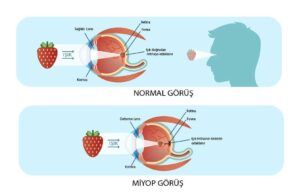
Secrets of Healthy Weight Loss?
Understanding the Role of Genetics in Weight Loss, Obesity is a major public health issue worldwide. According to the World Health Organization (WHO), over 1.9 billion adults were overweight, and 650 million of them were obese in 2016. While lifestyle and environmental factors such as diet and physical activity play a significant role in obesity, genetics also play a crucial role in weight regulation and weight loss.
The human body weight is regulated by a complex interaction between genetic, environmental, and behavioral factors. Researchers have identified several genes and genetic variants that are associated with body weight and body fat distribution. These genes affect various physiological processes such as energy metabolism, appetite regulation, and fat storage.
One of the most well-known genes associated with obesity is the FTO gene. The FTO gene is responsible for the production of a protein that regulates appetite and energy balance. Variants of the FTO gene have been found to increase the risk of obesity by up to 30%. Other genes associated with obesity include MC4R, BDNF, and SH2B1. These genes also affect appetite regulation and energy metabolism.
In addition to genes associated with obesity, researchers have also identified genes that are associated with weight loss. For example, the ADRB2 gene has been found to play a role in weight loss. The ADRB2 gene codes for a protein that is involved in fat metabolism. Variants of this gene have been found to be associated with greater weight loss in response to exercise and dietary interventions.
However, genetics is not the only factor that influences weight loss. Environmental and lifestyle factors such as diet, physical activity, sleep, and stress also play a crucial role. Moreover, the interaction between genetics and environmental factors can affect weight loss outcomes.
For example, a recent study published in the New England Journal of Medicine found that genetics can affect the response to different diets. The study, which involved over 600 overweight adults, found that participants who followed a low-fat diet lost more weight if they had a specific genotype compared to those who followed a low-carbohydrate diet. On the other hand, participants with a different genotype lost more weight on a low-carbohydrate diet.
Another study published in the journal Nature Communications found that the gut microbiome can influence weight loss outcomes. The gut microbiome is the collection of microorganisms that live in the digestive tract. The study found that participants who lost more weight had a more diverse gut microbiome compared to those who did not lose as much weight. The gut microbiome can be influenced by diet and other environmental factors.
In summary, genetics plays a crucial role in weight regulation and weight loss. Several genes and genetic variants have been identified that are associated with obesity and weight loss. However, genetics is not the only factor that influences weight loss outcomes. Environmental and lifestyle factors such as diet, physical activity, sleep, and stress also play a crucial role. Therefore, a personalized approach that takes into account both genetics and environmental factors is necessary for effective weight loss.








